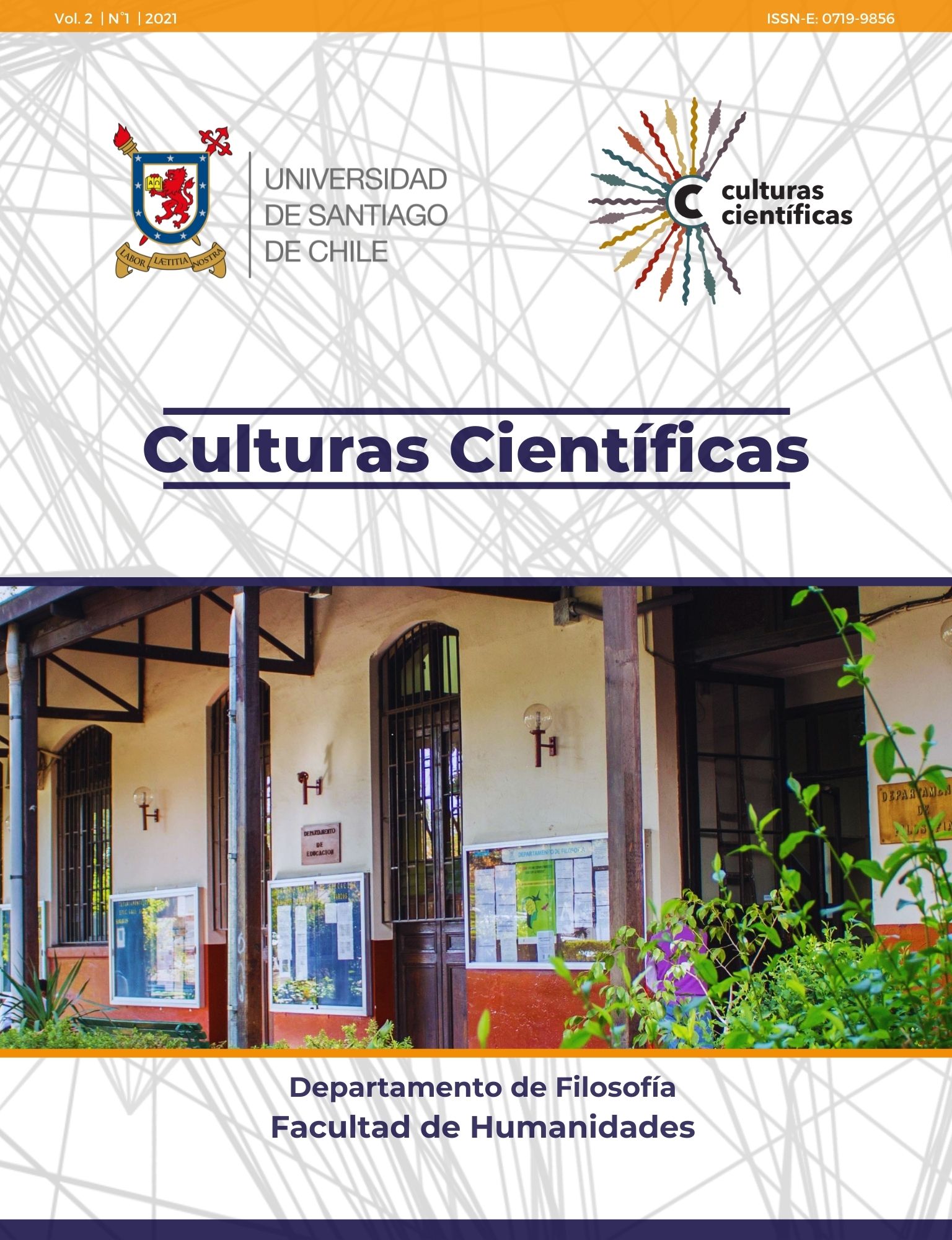A Review of Bayesian Conditionalization
A Proposal for Bayesian Extension on the Basis of Rational Reconstruction and Epsilon Conditionalization
DOI:
https://doi.org/10.35588/cc.v2i1.4903Keywords:
Subjective Probability, Degrees of Belief, Bayesian Dogmatism, Old Evidence, New TheoriesAbstract
Bayesian epistemology has simple conditionalization as its central concept. To understand in a good way how this rule operates, it is necessary to account for the subjective conception of probability. Based on the above, it is possible to clarify the scope and limits of simple conditionalization. In general, when this rule faces a difficulty, efforts are made to resolve this particular issue. Still, it is not usual to find unified proposals to resolve several of the complications underlying orthodox Bayesianism. Therefore, it is the purpose of this research to propose just that, an extended Bayesian framework that will aim to solve more than one issue, more specifically the incorrigibility problem, the zero raising problem, the old evidence problem, and the new theories problem. This will be achieved by adding to orthodox Bayesianism epsilon conditionalization and rational reconstruction.
Downloads
References
Armendt, B. (1980). “Is there a Dutch book argument for probability kinematics?” Philosophy of Science 47(4): 583-588. doi: https://doi.org/bjrwpm
Athreya, K. B. y Lahiri, S. N. (2006). Measure Theory and Probability Theory. Nueva York: Springer Science & Business Media.
Belot, G. (2013). “Bayesian orgulity”. Philosophy of Science, 80(4): 483-503. doi: https://doi.org/gpkp
Bernardo, J.M. (1997). Bruno de Finetti en la Estadística Contemporánea. José-Miguel Bernardo (página personal, Universitat de València). URL: https://www.uv.es/~bernardo/publications.html. Consultado el 13 de julio del 2020.
Bhattacharyya, G., y Johnson, R. (1977). Statistical Concepts and Methods. USA: John Wiley & Sons.
Bird, A. (2018). Inference to the Best Explanation, Bayesianism, and Knowledge. En McCain, K. y Poston, T. (2018) Best Explanations: New Essays on Inference to the Best Explanation. Oxford: Oxford University Press. doi: https://doi.org/gprb
Curd, M., y Cover, J. A. (1998). Philosophy of science: The central issues. New York: W.W. Norton & Company.
de Finetti, B. (1974). Theory of Probability: A Critical Introductory Treatment. London: John Wiley and Sons. doi: https://doi.org/gprd
DeBrota, J. B., Fuchs, C. A., Pienaar, J. L. y Stacey, B. C. (2020). “The Born Rule as Dutch-Book Coherence (and only a little more)”. arXiv preprint arXiv:2012.14397. URL: https://arxiv.org/abs/2012.14397
Earman, J. (1992). Bayes or Bust? A Critical Examination of Bayesian Confirmation Theory. Cambridge, ma: MIT Press.
Easwaran, K. (2011). “Bayesianism I: Introduction and arguments in favor”. Philosophy Compass, 6(5): 312-320. doi: https://doi.org/cwv9c9
Edwards, A. W. (1984). Likelihood. Cambridge science classics. Cambridge University Press.
Elga, A. (2016).” Bayesian humility.” Philosophy of Science, 83(3): 305-323. doi: https://doi.org/gg432b
Friedman, R. D. (1997). “Towards a (Bayesian) convergence?” The International Journal of Evidence & Proof, 1(special): 348-360. doi: https://doi.org/gprg
Garola, C. (2018). “An Epistemic Interpretation of Quantum Probability via Contextuality”.
Foundations of Science, 25(1), 105-120. doi: https://doi.org/gprh
Gillies, D. (2000). Philosophical theories of probability. USA. Psychology Press.
Glymour, C. (1980). Theory and Evidence. Princeton, New Jersey: Princeton University Press.
Grünwald, P. (2012). The safe bayesian. En International Conference on Algorithmic Learning Theory (pp. 169-183). Berlin: Springer Heidelberg.
Hacking, I. (1972). “Likelihood”. The British Journal for the Philosophy of Science, 23(2): 132-137. doi: https://doi.org/dn48vp
Hacking, I. (2006). The emergence of probability: A philosophical study of early ideas about probability, induction and statistical inference. Cambridge University Press. doi: https://doi.org/gprk
Hájek, A. (Fall 2019). Interpretations of Probability. The Stanford Encyclopedia of Philosophy, Edward Zalta (ed.): URL: https://plato.stanford.edu/archives/fall2019/entries/probability-interpret/
Hájek, A. y Hartmann, S. (2010). Bayesian epistemology. Oxford: Oxford University Press Hájek, A. y Lin, H. (2017). “A tale of two epistemologies?”. Res Philosophica, 94(2): 207-232.
Hansson, S. O. (Winter 2017). Logic of Belief Revision. The Stanford Encyclopedia of Philosophy, Edward Zalta (ed.). URL: https://plato.stanford.edu/archives/win2017/entries/logic-belief- revision/
Hartmann, S. y Fitelson, B. (2015). “A new Garber-style solution to the problem of old evidence.”
Philosophy of Science, 82(4): 712-717. doi: https://doi.org/gprn
Hawthorne, J. (1994, January). “On the nature of Bayesian convergence”. En PSA: Proceedings of the Biennial Meeting of the Philosophy of Science Association (Vol. 1994, No. 1, pp. 241-249). Philosophy of Science Association. doi: https://doi.org/gprp
Hoefer, C. (2012). “Calibration: Being in Tune with Frequencies.” Dialéctica, 66(3),435-452. doi: https://doi.org/gprq
Howson, C. (1991). “The 'old evidence' problem”. The British Journal for the Philosophy of Science, 42(4): 547-555. doi: https://doi.org/bk6kb2
Howson, C. y Urbach, P. (2006). Scientific reasoning: the Bayesian approach. Open Court Publishing.
Huber, F. y Schmidt-Petri, C. (2008). Degrees of Belief. Springer Science & Business Media. doi: https://doi.org/cwqwh6
Huttegger, S. M. (2015). “Bayesian convergence to the truth and the metaphysics of possible worlds”.
Philosophy of Science, 82(4): 587-601. doi: https://doi.org/gprr
Iseda, T. (1999). “Use-Novelty, Severity, and a Systematic Neglect of Relevant Alternatives”.
Philosophy of Science, 66: 403-413. doi: https://doi.org/d5v9wb
Jeffrey, R. (2002). “Petrus Hispanus Lectures: I. "After Logical Empiricism" II. "Radical Probabilism"”. En Works by and about Richard Jeffrey (página personal, Universidad de Princeton). URL: http://www.princeton.edu/~bayesway/. Consultado el 12 de mayo del 2020.
Joyce, J. M. (2011). “The devolepment of subjective Bayesianism”. En Gabbay, M. y Hartmann, S. (eds.) Handbook of the History of Logic (Vol. 10, pp. 415-475). USA: North-Holland.
Khrennikov, A. (2016). “Quantum Bayesianism as the basis of general theory of decision-making.” Philosophical Transactions of the Royal Society A: Mathematical, Physical and Engineering Sciences. 374(2068) doi: https://doi.org/f3rnrj
Koertge, N. (1978). “Towards a new theory of scientific inquiry”. En Cohen, R. Davidson, S , Nuchelmans, G., Salmon,W. (1974) Progress and rationality in science (pp. 253-278). Holland: Reidel Publishing Company. doi: https://doi.org/d2swcr
Lange, M. (1999). “Calibration and the Epistemological Role of Bayesian Conditionalization.” The Journal of Philosophy, 96(6): 294-324. doi: https://doi.org/bzw33s
Levi, I. (1967). Probability Kinematics. The British Journal for the Philosophy of Science, 18 (3): 197–209. doi: https://doi.org/b3k2t5
Lewis D. (1976). “Probabilities of Conditionals and Conditional Probabilities”. En Harper W.L., Stalnaker R., Pearce G. (eds) IFS. The University of Western Ontario Series in Philosophy of Science (A Series of Books in Philosophy of Science, Methodology, Epistemology, Logic, History of Science, and Related Fields), vol 15. Dordrecht: Springer. doi: https://doi.org/gprt
Lewis, D. (1981). “Causal Decision Theory”. Australasian Journal of Philosophy, 59(1): 5–30. doi: https://doi.org/bs3w2t
Parrott, M. (2014). “Bayesian models, delusional beliefs, and epistemic possibilities.” The British Journal for the Philosophy of Science, 67(1): 271-296. doi: https://doi.org/f3r4vz
Press, S. J. (2009). Subjective and Objective Bayesian Statistics: Principles, Models, and Applications. New Jersey: John Wiley & Sons.
Raidl, E. (2020). “Open-Minded Orthodox Bayesianism by Epsilon-Conditionalization.” The British Journal for the Philosophy of Science, 71(1): 139–176. doi: https://doi.org/gprv
Regazzini, E. (2013). The origins of de Finetti’s critique of countable additivity. En Jones,G, Shen, X. (2013) Advances in modern statistical theory and applications: a Festschrift in honor of Morris
L. Eaton (pp. 63-82). Institute of Mathematical Statistics.doi: https://doi.org/gprw Savage, L. J. (1954). The Foundations of Statistics. New York: John Wiley and Sons
Shaffer, M. J. (2008). “Bayesianism, convergence and social epistemology.” Episteme,5(2): 203-219. doi: https://doi.org/bskckz
Sprenger, J. (2015). “A novel solution to the problem of old evidence.” Philosophy of Science, 82(3): 383-401. doi: https://doi.org/gprx
Sprenger, J., y Hartmann, S. (2019). Bayesian philosophy of science. Oxford University Press. doi: https://doi.org/gprz
Strevens, M. (2006). The Bayesian Approach to the Philosophy of Science. En D. M. Borchert (ed.),
Encyclopedia of Philosophy, second edition. Macmillan Reference (pp. 495-502.).
Suzuki, S. (2005). “The old evidence problem and AGM theory.” Annals of the Japan Association for Philosophy of Science, 13(2):105-126. doi: https://doi.org/gpr2
Talbott, W. (Winter 2016). "Bayesian Epistemology". The Stanford Encyclopedia of Philosophy, Edward N. Zalta (ed.). URL: https://plato.stanford.edu/archives/win2016/entries/epistemology- bayesian/
Teller, P. (1973). “Conditionalization and observation”. Synthese, 26(2): 218-258. doi: https://doi.org/dt3n5j
Tesic, M., Eva, B., & Hartmann, S. (2017). Confirmation by explanation: A Bayesian justification of IBE. Open Access LMU. URL: https://epub.ub.uni-muenchen.de/41934/. doi: 10.5282/ubm/epub.41934
Torretti, R. (2003). “El concepto de probabilidad”. Diálogos, 38(81): 407-448.
Trpin, B. (2020). “Jeffrey conditionalization: proceed with caution”. Philosophical Studies. 177(10): 2985-3012. doi: https://doi.org/ghc9dh
van Fraassen, B. C. (1983). “Calibration: A Frequency Justification”. En Cohen, R. y Laudan, R. (eds), (1983), Physics, Philosophy and Psychoanalysis. Dordrecht: Springer.
Vineberg, S. (Spring 2016). "Dutch Book Arguments". The Stanford Encyclopedia of Philosophy, Edward N. Zalta (ed.), URL: https://plato.stanford.edu/archives/spr2016/entries/dutch-book/
Weintraub, R. (1993). “Fallibilism and rational belief”. The British journal for the philosophy of science, 44(2): 251-261. doi: https://doi.org/c26twh
Wenmackers, S., & Romeijn, J. W. (2016). “New theory about old evidence”. Synthese, 193(4):1225- 1250. doi: https://doi.org/gfjw5r
Downloads
Submitted
2021-04-22Published
Issue
Section
License
Copyright (c) 2021 Rodrigo Iván Barrera Guajardo

This work is licensed under a Creative Commons Attribution 4.0 International License.











